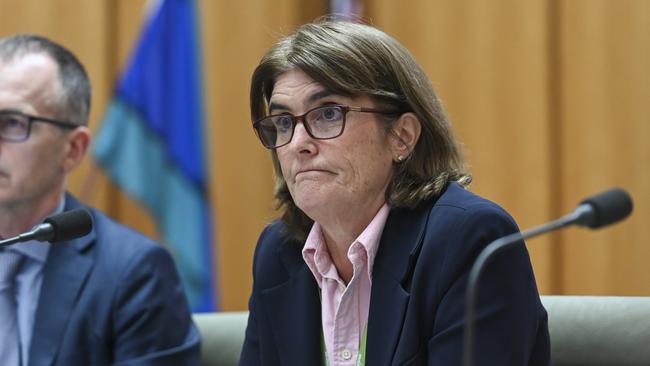‘Overkill’: November rate hike unnecessary economists warn, as per-capita recession deepens
After new figures this week confirmed a deepening of Australia’s per-capita recession, analysts have lashed RBA governor Bullock’s latest rate hike.
Interest Rates
Don't miss out on the headlines from Interest Rates. Followed categories will be added to My News.
The Reserve Bank’s November rate hike was “overkill”, economists have cautioned, after fresh GDP data revealed a sharp decline in household spending on non-essential items such as cars, clothes and eating out in the final three months of 2023
Economic growth slowed to a crawl in the December quarter, the Bureau of Statistics said earlier this week, expanding by just 0.2 per cent, as the RBA’s aggressive run of rate hikes worked to tame inflationary pressures.
The quarterly result meant GDP expanded 1.5 per cent over 2023, and in line with the central bank’s forecasts.
Outside the depths of the coronavirus pandemic and the introduction of the GST in 2000, the GDP reading was the weakest since the 1990s recession.
Were it not for Australia’s record migration intake, which bolstered the nation’s population by almost 650,000 last year, economic growth would have contracted.
On a per person basis — which more accurately indicates how households are weathering the slowdown — the economy contracted for a third consecutive quarter, the figures showed, marking a deepening of Australia’s per capita recession.
“Reflecting the likely ongoing population boom, per-capita activity is set to remain in recession in the coming quarters,” UBS Australia chief economist George Tharenou said.
With households facing pressure as the RBA ratcheted up borrowing costs, AMP chief economist Shane Oliver said the most recent 25 basis point rate increase — the 13th since May 2022 — was “unnecessary”.
“It does look as if it was a bit like overkill at the time and now you’ve got the household sector which has virtually stalled and is going backwards,” Dr Oliver said.
“It would’ve make more sense to look through that September [inflation] spike and wait a little bit longer ... if inflation continued to spike that it would have given [the RBA] more time to assess in the event inflation resumed its downswing.”
Over the quarter, the GDP data showed household spending inched just 0.1 per cent higher, as they prioritised essentials, including food, rent, electricity and gas, up 0.7 per cent.
Meanwhile, spending on discretionary purchases such as clothes, cars, and at hotels, cafes and restaurants, fell 0.9 per cent.

Even as Wednesday’s GDP figures showed a surprise uptick in the household savings ratio which rose to 3.2 per cent, up from 1.9 per cent during the September quarter, economists said it remained well below its average of about 6 per cent recorded before the pandemic.
“Households in aggregate are actually saving less than they were pre-pandemic and that’s simply because they’ve got to use more of their income just to pay for stuff,” CommBank’s head of Australian economics Gareth Aird said.
RBC chief economist Su-Ling Ong added that the increase in the household savings rate could point to preparation for an increase in the unemployment rate.
“Households look to be saving a little more rather than spending and this may well be the early first signs of precautionary saving as the labour market begins to soften,” she said.
Dr Oliver’s view was shared by Deloitte Access Economics partner Stephen Smith, who said the impact of the latest rate was yet to be fully experienced.
“We really haven’t even seen the full effect of monetary policy tightening through the economy — that’s still to happen through the first half of 2024,” Mr Smith said.
“Combined with more people rolling off fixed mortgages, there’s still more pain to come for households.”
Analysis released by economists at Commonwealth Bank, the nation’s largest lender, showed in the 12 months to December, borrowers forked out almost 40 per cent more on their home loans.
The costs of mortgage repayments had climbed a “massive” 162 per cent since their lowest point during the pandemic, the analysis showed.
The RBA’s board is scheduled to next convene on March 18-19 where it is widely expected to keep interest rates on hold at a 12-year high of 4.35 per cent.
More Coverage
Originally published as ‘Overkill’: November rate hike unnecessary economists warn, as per-capita recession deepens




